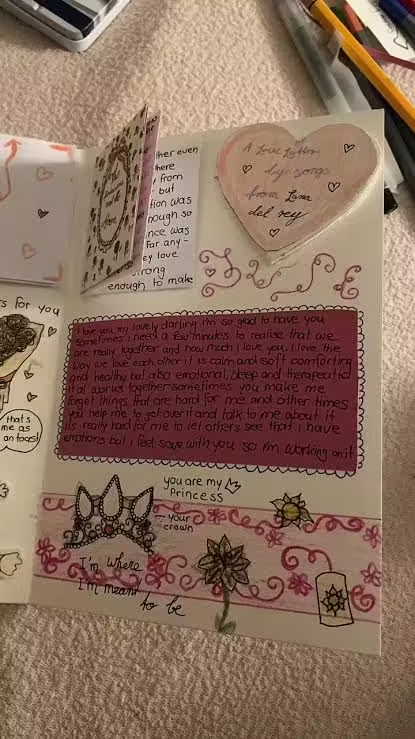When it comes to relationships, sometimes the lines between healthy and toxic communication can blur, especially if certain phrases are normalized by society or past experiences. Some messages that seem harmless—or even romantic—might actually be undermining trust, self-esteem, and emotional well-being over time. Often, these phrases carry hidden meanings, expectations, or manipulation tactics that can damage the foundation of a healthy relationship. Recognizing these messages is the first step toward fostering open, honest, and supportive communication.
Here are nine common messages that many people mistake for normal but could actually signal toxicity.
Unhealthy Messages Many Think Are Normal In A Relationship

1. “If you really loved me, you would…”
On the surface, this phrase might sound like it is about proving commitment, but it is often a tactic to guilt someone into doing something they may not be comfortable with. True love doesn’t come with ultimatums. In a healthy relationship, both partners respect each other’s boundaries without needing to question their love or commitment.
2. “I’m only doing this because I care about you”
While it is normal to show concern for each other, using care as a justification for controlling or invasive behavior is unhealthy. If your partner constantly frames their actions as being “for your own good,” especially when they disregard your comfort, it might indicate manipulation rather than genuine care.
3. “You’re lucky I put up with you”
This phrase subtly suggests that one partner is doing the other a favor by staying with them. It implies that the other person is unworthy, creating an unhealthy power dynamic. Relationships should be based on mutual respect and appreciation, not on one person feeling indebted or “lucky” to be with the other.
4. “If you don’t want to lose me, you’d better change”
Threatening to end the relationship unless someone changes is a classic manipulation tactic. Healthy relationships encourage personal growth, but threats create fear and resentment rather than genuine motivation. Real change should come from self-awareness and the desire to improve, not from the fear of abandonment.
5. “You complete me”
While this phrase is often romanticized, it can suggest an unhealthy dependency where one person feels incomplete without the other. Relationships should be about two whole individuals coming together, not filling each other’s emotional voids. Over-reliance on a partner to feel “complete” can lead to resentment and codependency over time.
6. “I know what’s best for you”
Though it may sound caring, this message implies that one partner’s opinion or perspective is superior. In a balanced relationship, both partners trust each other’s judgment and autonomy. Constantly asserting that one “knows best” can diminish the other person’s confidence in making their own decisions.
7. “Why can’t you be more like…?”
Comparing your partner to someone else, whether it is an ex, a friend, or even a celebrity, is deeply toxic. It undermines their sense of self-worth and sends the message that they are not good enough as they are. In a healthy relationship, both partners should feel valued for who they uniquely are, without feeling they need to measure up to others.
8. “You’re being too sensitive”
Dismissing your partner’s emotions by calling them “too sensitive” invalidates their feelings and can lead to a sense of shame or self-doubt. While sensitivity levels vary, each person’s feelings deserve respect. Healthy communication involves listening and understanding, not minimizing someone’s emotions.
9. “You owe me this after everything I’ve done”
Holding past actions over a partner’s head to make them feel indebted is a form of emotional manipulation. While relationships naturally involve give-and-take, using past efforts as leverage creates a transactional dynamic rather than one based on mutual kindness and respect.
Conclusion
It is easy to overlook these toxic phrases, especially when they have been normalized in culture or past relationships. However, awareness is crucial. By recognizing and addressing these messages, couples can work toward healthier communication that respects each other’s individuality, boundaries, and emotions.
Building a relationship on genuine love and mutual understanding rather than guilt, manipulation, or unrealistic expectations allows both partners to grow together in a supportive environment. So, if you spot any of these toxic messages, take a step back, reflect, and consider ways to shift toward a more respectful, understanding, and loving connection.
